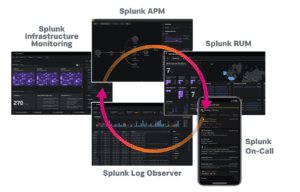Splunk, a company involved in the analysis of big data, is leaving the Russian market. The company, which also sells cybersecurity tools, gives no reason for that decision. It just lets us know that it continuously evaluates in which markets it invests and where it focuses its attention.
The main product of Splunk is the Splunk Enterprise Security platform. This includes a number of tools for event management and security. These tools are aimed at companies that collect and analyse data from machines and sensors. The platform provides insights into possible security problems within networks and endpoints, among others. These products are no longer available in Russia.
Unclear why
In a statement on his site, Splunk writes that it will no longer sell software and services to organisations in Russia – neither directly nor through partners. The decision therefore affects not only companies in Russia, but also subsidiaries operating in other countries. Companies that use Splunk’s software and services and also use them in Russia are no longer allowed to do so. Splunk will honor existing deals, but not renew or extend them.
Splunk’s decision may have something to do with a request from the Russian government in January 2018. It wanted to know the source code of a number of American companies. At the time, Reuters reported that HPE, SAP and Symantec, among others, were in agreement. Trend Micro refused, however, with unknown consequences. Splunk may have received a similar request from the Russian authorities and simply refused to accept it.
Analyst Holger Mueller of Constellation Research says to the site SiliconANGLE that sometimes it is not entirely clear why a tech company is active in one market and not in another. According to Mueller, it is especially interesting when a company leaves a market, as Splunk is doing now. Usually such a decision has to do with intellectual property, security and data storage, as well as government involvement.
This news article was automatically translated from Dutch to give Techzine.eu a head start. All news articles after September 1, 2019 are written in native English and NOT translated. All our background stories are written in native English as well. For more information read our launch article.

















